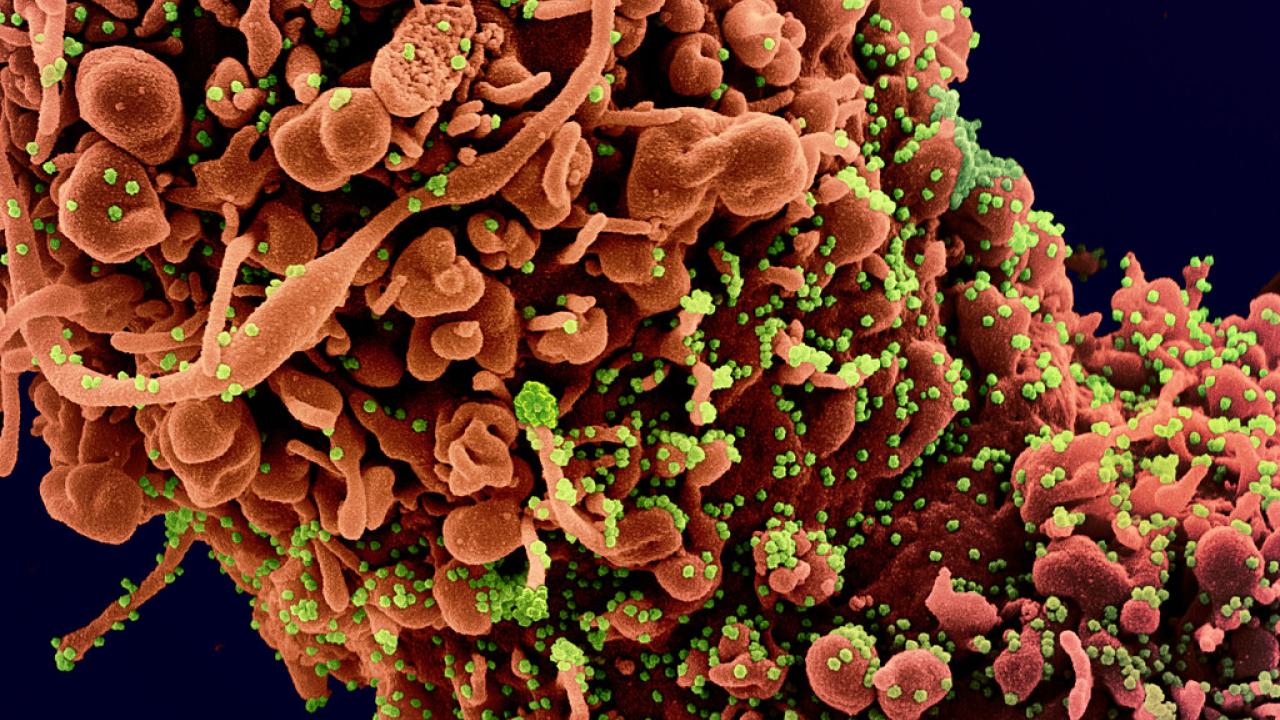
National Science Foundation Grant to Help UC Davis Researchers Track Evolution of Novel Coronavirus
As the disease COVID-19 spreads across the planet, scientists continue to combat the novel coronavirus (SARS-Cov-2) on all fronts. But viruses are fickle, mutating to ensure their survival as they hop hosts. Genomic mutations and natural selection could reduce the effectiveness of a potential vaccine for the novel coronavirus, and different sequence variations and strains of the virus are continuously being reported in databases like GISAID.
To stay a step ahead of the virus, an interdisciplinary team of UC Davis researchers will use mathematics, data science and experimental biology to predict potential mutations of the novel coronavirus. The proposed research was recently funded by a $200,000 RAPID grant from the National Science Foundation.
Coronaviruses are characterized by spike proteins that line the exterior of each virus, giving it a crown-like (the “corona”) appearance. These spike proteins act like keys, allowing the virus to infect human cells via the ACE-2 receptor, which lies on the surface of the target cell. As the coronavirus spreads, spike proteins accumulate mutations, potentially providing the virus with new keys to hijack human cells.
“By using a combination of data science, mathematics and biophysical methods, we aim to predict the sequences of the spike protein that are most likely to expand the host range of the virus and to increase its virulence,” the researchers said.
The UC Davis team consists of Javier Arsuaga, Professor of Molecular and Cellular Biology and of Mathematics; Raymond Rodriguez, Emeritus Professor of Molecular and Cellular Biology; and Mariel Vazquez, Professor of Mathematics and of Microbiology and Molecular Genetics, and CAMPOS faculty director.
The crux of the research revolves around developing algorithms that mimic the evolution of the virus. Aided by mathematical descriptions of the data and by molecular modeling, the research team will predict potential mutations of the virus while also providing insights into its fitness and transmission probability.
“The proposed work has important implications in many areas including determining the origin and evolution of the virus, design of vaccines and of antiviral medications, and in social policy since low (or predictable) mutation rates would make the reactivation of the economy and social life easier,” the team said. “The latter is particularly important because we might see a surge of COVID-19 in the fall of 2020.”
Seed support for this project was provided by the UC Davis Center for Data Science and Artificial Intelligence Research (CeDAR).
